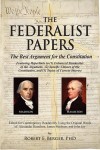
Lower capital gains taxes fueled a Wall Street bubble.
While recently engaged in a dialogue with an individual who was upset with the greed on Wall Street and wanted to increase corporate taxes, I realized that he was unable to understand the difference between corporate taxes and capital gains taxes, and that neither political party or the media have been very helpful in educating American citizens about the difference—and the difference is huge.
Capitals gains taxes are taxes on profits that investors make on investments in corporate stocks.
Capital gains are also profits on other types of asset appreciation, including land, homes, and other non-paper investments. However, with the large increase in managed portfolios for retirement funds, capital gains on paper investments like corporate stocks have played a significant role in reshaping the US economy. No longer are just a few venture capitalists hoping to strike it rich on Wall Street, but tax deferred 401k and 403b retirement accounts have turned most government and corporate employees, both Democrat and Republican, into investors in corporate stocks. Wall Street has become a Main Street idea. Republicans like Mitt Romney, who worked at Bain Capital, argue that these taxes should be kept low so that individuals will invest their money in corporations. Reductions in capital gains taxes were part of the “Reaganomics” strategy that brought in more investment capital and led to the rebirth of the American economy and jobs in the 1980s that is worthy of being called “miraculous.” Their success has caused many people to advocate low or no taxes on capital gains as a way to create jobs, and this is a priority on the Republican Party Platform.
The Wall Street boom that accompanied the increased investments in the 1980s led to many opportunities, challenges, and changes on Wall Street. Large concentrations of money in one place led to many temptations, wider acceptance of greed, higher payouts, and bought-off regulators in the SEC. Banks wanted to begin investing, using money from FDIC guaranteed depositors to speculate on the market. Both Republicans and Democrats received increased contributions from Wall Street and banking lobbyists. There were inadequate checks and balances in the system to prevent this behavior and politicians in both parties turned a blind eye, letting the “good times roll.” Continue reading →








